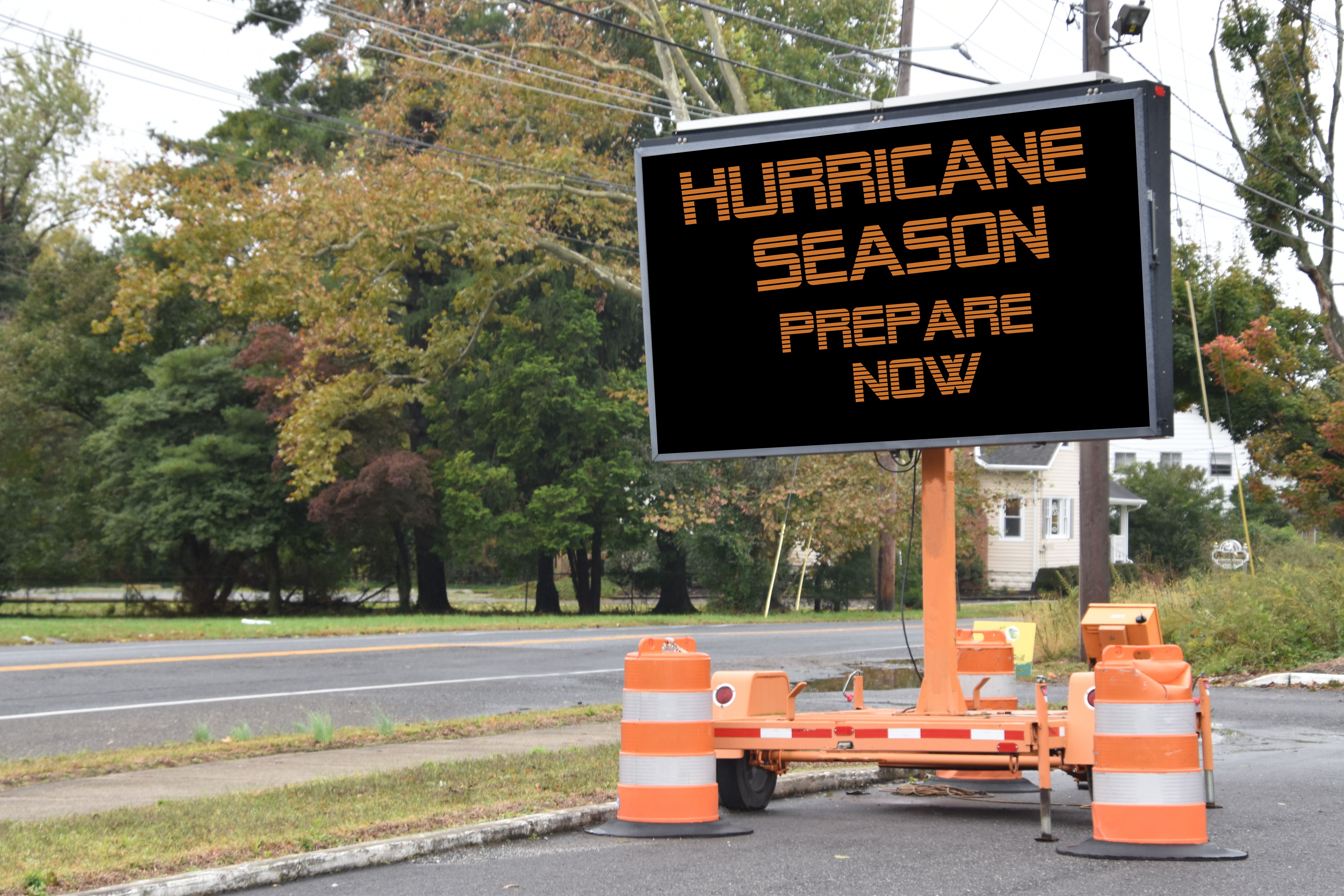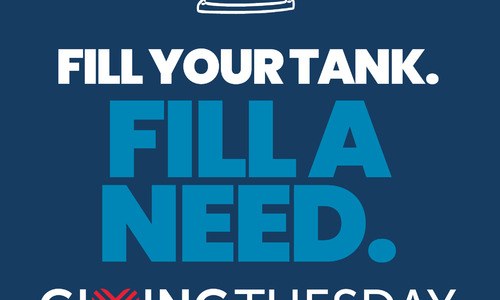Hurricane Preparedness from A-Z

As nice as fall weather can be, September is the most common month for hurricanes to make landfall in the United States and October ranks third. Don’t get caught in the storm. Be prepared by following this A-Z checklist so you and your family are safe.
Arrange for your propane delivery: Make sure your propane tank is filled. Know how to shut off the outdoor propane supply and indoor propane appliances if necessary. Remember, you cannot use propane in enclosed areas. In flood zones, anchoring your propane tank is required by the National Fire Protection Agency. Talk with your propane provider about how to best do that in the event of a storm. Do not store, place or use a propane cylinder indoors or in enclosed areas, such as a garage, shed, tent or basement.
Batteries: You know how hard batteries are to find when the threat of a major storm looms. Stock up now with batteries for a portable radio, lanterns, your carbon monoxide detector and flashlights. Every time you shop, it’s a good time to add a pack of batteries to the bag.
Cell phones should be fully charged and all portable charging devices should be charged. Otherwise, both are just paperweights.
Do not drive: You don’t want to be on the road during a hurricane, but it’s best to keep a full gas tank in case you need to evacuate. When the storm is over, you won’t have to worry about filling up.
Emergency plan: Most of us don’t like to think about evacuating our homes for any reason, but it’s essential to know where you would go if you had to leave your home during a hurricane. Make sure everyone in your family is on board and you have designated a meeting place as a point-of-contact. Plan a route and a backup route.
Flood zones: Of course, if you live in a flood zone, you need flood insurance. Visit the National Flood Insurance Program website for information.
Gas: Turn off the gas supply valve (clockwise) and turn off the appliance pilot lights, controls valves and manual shut-off valve if leaving your home. If you don’t know where your valves are, contact your propane supplier when the weather is good so you are prepared. If you smell gas inside or outside of your home, leave the area immediately. Do not return until your propane supplier determines it is safe to do so.
Hurricane shutters: It’s a good idea to have them, particularly if you live near the water. They protect your windows from the wind and can prevent flying debris from causing damage to your home.
Important documents should be secured in a portal, waterproof container.
Just do it: Borrowing from Nike here, but it’s easy to procrastinate. Don’t do it when it relates to your safety. Be alert, aware and prepared. Don’t delay stocking up on essentials. Lines are long and supplies are thin when a storm is in the air. Don’t say you’ll start your generator later only to be looking for the manual when power’s out. Get started on hurricane preparedness well before it becomes an emergency.
Kits: Have an emergency kit with nonperishable food and hygiene items for you and your family members. Have one for your baby that includes formula, diapers, wipes and extra blankets and clothes. Have a first aid kit. Have an emergency kit for all pets.
Local alerts: Have you signed up? Gloucester, Hampton, James City County, Middlesex, Newport News, York County
Medications: Don’t be running low as a storm is approaching. Make sure you refill your medications prior to conditions deteriorating.
NFPA & NOAA: Both are important acronyms. The National Fire Protection Agency requires you to anchor your propane tank during a storm if you live in a flood zone. Talk with your propane provider about how to best do that. A NOAA Weather Radio that will update you with information from the National Weather Service is a must.
Outdoor furniture: Bring it indoors. That goes for bird feeders and other objects that could damage your property or someone else’s in blustery conditions.
Pets: If you have pets, make sure you know what you will do with them in the event of an evacuation. Gather their food, medication, leashes, bowls and vaccine information so it is in one place if needed.
Qualified inspectors: Only a qualified person should inspect your gas when you’re ready to turn it back on. Before you attempt to use any of your propane appliances, a qualified service technician must ensure they’re in good working order. Schedule a time for a qualified technician to inspect everything about your propane system and confirm there are no leaks.
Rain gear: Ideally, you’ll be staying dry, but it’s best to have extra rain gear and boots on hand.
Supplies: Water, flashlights, battery-operated lanterns, batteries, tarps, plastic bags, tape, sandbags, shutters, plywood, hand tools, brooms, mops, towels — anything you rely on to get through a regular day, helps you through a storm. Have some easy-to-prepare food and entertainment options that work minus power.
Timber! If you didn’t do it over the summer, it’s a good time to get rid of that tree leaning toward your house. Large trees and shrubs should also be trimmed.
Unplug all appliances before evacuating your home.
Valves: Turn the valve right to turn off the gas in the event of an evacuation. After the storm, do not try to modify or repair valves, regulators or other appliance parts.
Water: Plan to be without water for three days and have one gallon for each household member per day.
Xtra: Need we remind you about extra batteries again? It never hurts to have too many.
You’re safe: Register your family with the Red Cross’ Safe and Well website to let extended family members know you’re safe. This free tool also helps you search for others.
Zone: Do you know your zone? Don’t wait until a storm approaches. It’s important to know your zone in case you’re asked to evacuate. Find it here.
